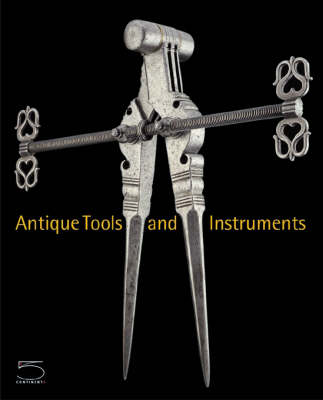This book looks at the manufacture of a whole range of functional objects from the Renaissance to the mid-nineteenth century, before the production of such pieces became almost entirely industrialised. It includes tools and implements employed in sciences, crafts and trades, as well as in domestic and personal life, and explains the context that led craftsmen to fashion these pieces with such dexterity and attention to detail that the end-products can be considered true works of art. Exceptional scientific instruments from the sixteenth and seventeenth centuries are strongly represented, focusing especially on Germany. There are detailed reproductions of astrolabes, topographical instruments, sundials and balances, often commissioned by princes and aristocrats for inclusion in their personal 'cabinet of wonders'. In the field of medicine, the book features many examples of surgical instruments, which initially emerged to meet the pressing needs of army surgeons on the battlefield and then developed into a variety of highly specialised pieces.
The examples of craftsmen's tools, where functional considerations were clearly paramount, illustrate how their practical purpose was integrated with highly symbolic decoration and careful choice of materials. In the home, the book looks at wrought-iron pieces used in the preparation of food at the hearth, which would often have played a central role in domestic life. There is also a section on the personal objects produced in France in the eighteenth and nineteenth centuries to cater for the ever-increasing sophistication of urban society. This created a demand for leisure equipment, needlework tools, writing, smoking and personal grooming accessories, and the 'travel kits' used by an ever more mobile population.
- ISBN10 8874391242
- ISBN13 9788874391240
- Publish Date 1 January 1999
- Publish Status Out of Print
- Out of Print 14 October 2009
- Publish Country IT
- Imprint Five Continents Editions
- Format Hardcover
- Pages 363
- Language English
